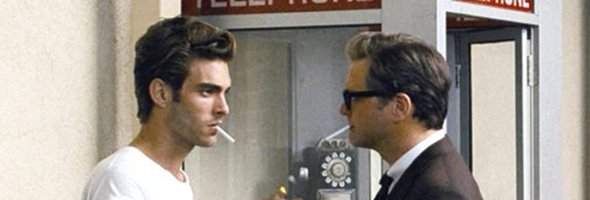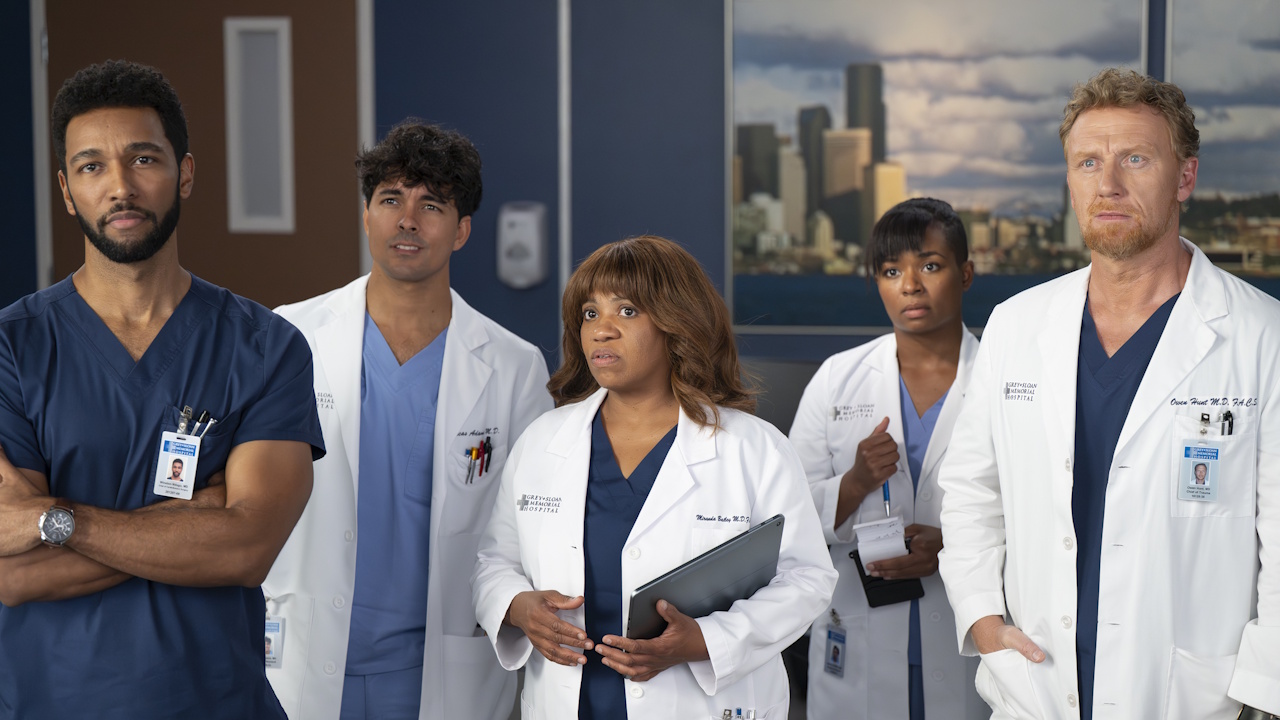George Falconer seems to have a pretty good thing going. He’s a Brit living in an extremely stylish and neat L.A. bachelor pad in 1962. He has money, a good job teaching college English, and a bunch of really nice clothes designed by a super-famous designer. Everywhere he goes, people seem to like him and want to be near him or with him. Since he’s played by Colin Firth, this makes sense. Also, he’s gonna kill himself. Betcha you didn’t see that one coming…ok, you probably did. George is gay, and his boyfriend of 16 years, Jim (Matthew Goode), died in a car accident eight months before. George can’t seem to keep on living without saying things like, “Just get through the goddamn day.” That’s something a few people are known to say, but George is grieving eight months later as freshly as if it were the first painful minutes, and he’s just tired of it. He’ll still go about his day, of course, before using the revolver he has packed in his briefcase. Because if he didn’t, where would the movie be?
Let’s get this out of the way: Colin Firth, as George, is really the sole reason to see this film. He’s a great actor in a decent role who just kicks ass every time he’s on the screen (which is pretty much every scene.) George’s loss, his hopelessness, and the touches of life he enjoys on what is supposed to be his last day are conveyed brilliantly by Firth. His Oscar nomination was well deserved.
Firth is ably supported by Goode; Julianne Moore as his drunk, lonely, horny divorcee friend, Charley; and especially Nicholas Hoult as his student, Kenny. If you spend any time trying to figure out “where have I seen that Kenny before?” just think of the weird kid Marcus from About A Boy and be amazed that the kid turned out to be such a fine actor, because he’s good. This is really Firth’s show, though; the movie rises and falls on his performance and his performance is great. His ability to suck joy out of such a bleak day in his life is something to behold.
Unfortunately, it needs to be great to make up for the fashion/style show that first-time director (and well-known designer) Tom Ford turns the rest of the movie into. Ford, who also co-wrote the script with David Scearce, doesn’t have a living, breathing movie so much as a series of glamorous and exquisite 1960s fashion photos, moving like a flip-book in front of our eyes. The look is always more important than the plot, the emotion, the performance in nearly every scene. George’s suits are designed by Ford’s company, and his last name is a type of sunglasses that Ford sells. Talk about your synergy!
Ford also decides to go for the cheap points in throwing in some Cuban Missile Crisis and bomb-shelter worries to let George preach about fear to his English class. The middle class takes it in the shorts, naturally. George’s neighbors, despite being friendly and seemingly accepting, have accepted the “system” and are put down. There is a funny moment, however, when a clerk lets George know that handguns are on sale, two for one. Ford does pump up the color pallet to show when George is taking pleasure in life (for the first time in eight months) and drains it at all away at other times, but this isn’t particularly novel, is it?
Firth succeeds in making this movie worth watching, and Ford probably has more pretty pictures in his future. If you ever looked at a high-fashion ad and said, “Wouldn’t it be cool if a really great actor did a little play in the middle of this ad?” you’ll love this movie. For the rest of it, we enjoy Firth’s performance and wish there was just a little more substance to go along with the style. A Single Man seems like a good movie to see on DVD. It’s all good acting and quiet moments that might get lost on the big screen. Still, it’s also like a living issue of some fashion magazine, so that does get somewhat lost here. Not that the crisp, black-and-white look of many of the costumes and scenes isn’t well served. If you’ve got a good TV, even the lack of a big screen or high-def disc won’t mute the powerful look.
Director Ford provides a commentary, and he is, if nothing else, helpful. He doesn’t ramble on poetically, he just states things in a matter-of-fact way to give insight into the movie, story, movie-making process, and actors. He’s really not much of a storyteller, though, something that is apparent in both the film itself and his commentary. He says things as if he’s reading them off a card, and moves on to the next fact, nothing tying them together. But if information is what you're after, he’s a commentary dream.
Your Daily Blend of Entertainment News
There is also a 15-minute making-of featurette. Ford’s fingerprints are all over this as well. It’s one of the few I’ve seen where the speakers (Ford, Firth, Moore, Goode, and Hoult) are shot in an arty, black and white, and there is primarily just straightforward discussion of the movie’s plot and look. It’s factual, beautiful to look at, but a bit sterile. It also comes across as a bit repetitive when you combine it with the commentary. It’s not like things aren’t pretty obvious to begin with, so we don’t need 15 explanations of what the color means or what George is getting out of this day.
Watching the movie you get a sense of why it was nominated for Best Actor and nothing else. Firth carries this movie, and the DVD is worth picking up simply for his performance and a look at all the beautiful people and scenes.

